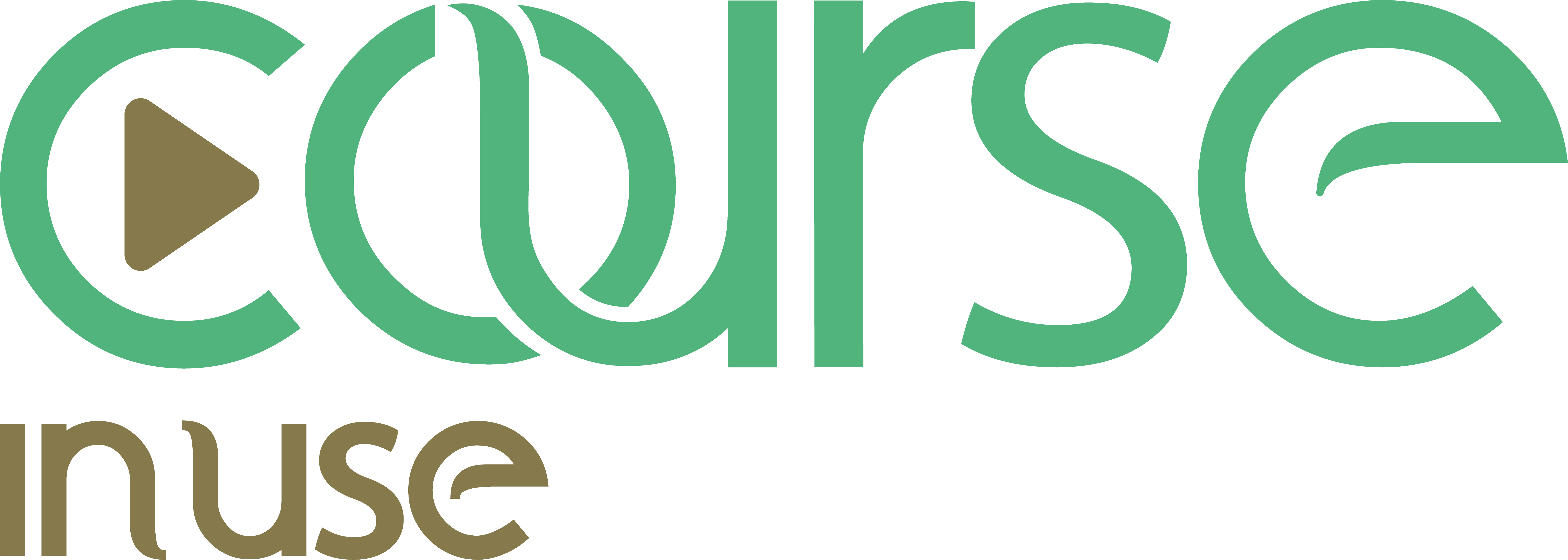The Certified Management Accountant (CMA) certification is a prestigious professional credential offered by the Institute of Management Accountants (IMA). This certification signifies advanced competencies in financial accounting, corporate finance, and strategic planning, empowering accountants and financial professionals to validate their expertise in financial management.
CMA holders are often found in senior and managerial roles within the accounting and finance sectors, with many advancing to positions such as controllers and Chief Financial Officers (CFOs). Since its inception in 1972, over 100,000 accountants from more than 150 countries have successfully earned the CMA certification, establishing it as a global standard in management accounting.
Although the CMA certification is not a mandatory requirement for working in financial accounting, it is highly preferred by many employers, particularly for positions that offer opportunities for career advancement. Achieving the CMA credential can significantly boost your earning potential and enhance your professional success in the competitive field of accounting.
This comprehensive guide provides essential details about obtaining the CMA certification, equipping you with the knowledge to excel in your career research and choose a bright and successful future in accounting and finance.
Benefits of becoming a Certified Management Accountant (Why Get Certified as a CMA?)
- Expanded Career Prospects
- Attaining the CMA certification unlocks opportunities for advanced roles in management accounting and financial analysis. Numerous organizations prefer recruiting CMAs for positions such as financial controllers, finance directors, and Chief Financial Officers (CFOs).
- Boosted Earning Potential
- CMAs generally receive higher compensation compared to their non-certified peers. Recent statistics indicate that CMAs can earn up to 22% more than non-certified professionals in comparable positions.
- Enhanced Professional Reputation
- The CMA designation is recognized internationally and demonstrates a high level of proficiency in management accounting and financial oversight. It improves your professional standing among employers, clients, and colleagues.
- Development of Strategic Skills
- The CMA curriculum equips you with essential competencies in financial analysis, strategic forecasting, and informed decision-making. These abilities are vital for effective management and driving business success.
- International Recognition
- The CMA certification is acknowledged globally, giving you a competitive advantage in the international job market. This recognition can facilitate employment across diverse industries and countries.
- Connection to a Professional Network
- Becoming a CMA provides access to a powerful network of professionals and organizations within the accounting and finance sectors. This network can offer valuable resources, mentorship, and pathways for career advancement.
- Employment Stability
- The demand for proficient management accountants remains robust, regardless of economic changes. CMAs possess specialized skills that are crucial for organizations, ensuring greater employment stability.
- Dedication to Lifelong Learning
- CMAs are obligated to participate in continuous professional development, ensuring they remain updated with industry trends and best practices. This dedication enhances your expertise and adaptability.
- Comprehensive Business Acumen
- The CMA syllabus encompasses a broad array of subjects, including risk management, performance evaluation, and ethical practices, providing a well-rounded understanding of business operations and financial strategies.
- Capability to Impact Decisions
- CMAs frequently assume a pivotal role in strategic decision-making within organizations. Their expertise enables them to offer valuable insights that shape financial and operational strategies.
CMA Certification Prerequisites (Requirements and more …)
To obtain your initial CMA certification, you must fulfill educational and professional experience prerequisites. In terms of education, you are required to hold at least a bachelor’s degree. Regarding work experience, you must have a minimum of two consecutive years of full-time employment in a role related to financial management or management accounting.
To register for the two-part CMA Examination, you will need an active membership with the Institute of Management Accountants (IMA). This examination consists of multiple-choice questions and essay sections. You will become eligible for your CMA designation by successfully passing both parts and satisfying the educational and experience criteria.
Educational Prerequisites
To qualify for the IMA‘s educational standards for CMA certification, you must possess a bachelor’s degree from an accredited institution. While your degree does not need to be specifically in accounting, you will require advanced accounting knowledge to successfully pass the CMA examination.
If you earned your degree from a non-accredited institution, an independent agency recognized by the IMA must assess your credentials. This evaluation may be necessary if, for instance, you completed your program outside of the United States.
Moreover, the IMA may waive educational prerequisites for candidates holding certain accounting-related certifications. Acceptable U.S. credentials include:
- Certified Fraud Examiner (CFE)
- Certified Internal Auditor (CIA)
- Certified Treasury Professional (CTP)
- Chartered Financial Analyst (CFA)
Professional Prerequisites
The professional experience prerequisites include a minimum of two years of continuous full-time employment in financial management or management accounting. Clerical, internship, and trainee roles do not qualify. Your employment must encompass decision-making responsibilities that utilize financial management and/or management accounting best practices.
A partial list of qualifying responsibilities includes:
- Preparing financial statements or reports for the Securities and Exchange Commission (SEC)
- Conducting financial forecasting, analysis, and/or planning
- Engaging in forensic accounting or auditing (internal or external)
- Managing corporate investments and/or financial operations
The IMA also recognizes teaching experience as an accounting instructor at the college or university level as valid professional experience.
Additionally, you can qualify through part-time employment if the position involves at least 20 hours of work per week and meets the other requirements. The IMA considers two years of part-time employment to be equivalent to one year of full-time work.
CMA candidates cannot utilize work experience as a substitute for educational qualifications.
Cost of CMA certification (CMA exam fees)
| Membership Category | Fee for Membership | CMA Entry Fee | Exam Fee (per section) |
| Student Member | $49 | $225 | $370 |
| Academic Member | $160 | $225 | $370 |
| Professional Member | $295 | $300 | $495 |
- Penalty fees and forfeitures may be applicable if you fail to reschedule your exam at least 72 hours prior to the testing date or if you do not cancel your exam at least 30 days before the scheduled assessment.
What Does the CMA Exam Cover? CMA exam format
The CMA examination consists of two segments, each featuring multiple-choice questions and essay prompts. To progress to the essay portion, candidates must achieve a minimum score of 50% on the multiple-choice section. Please note that this assessment is not an open-book exam.
Part 1 of the CMA examination focuses on financial planning, performance evaluation, and analytics.
Part 2 assesses your expertise in strategic financial management.
The IMA administers the CMA exam in a computer-based format across its global network of Prometric Testing Centers. Candidates have the flexibility to complete the two exam segments in any sequence. Additionally, examinees can choose to take both segments on the same day or different days.
The table below provides more detailed information regarding the structure of the exam:
CMA Exam Structure
| Section | Format | Time |
| Part 1: Financial Planning, Performance, and Analytics | 1.100 multiple-choice questions
2.Two essay prompts covering a total of 10-12 calculations or written responses |
1.Three hours for multiple-choice questions
2.One hour for essay prompts |
| Part 2: Strategic Financial Management | 1.100 multiple-choice questions
2. Two essay prompts covering a total of 10-12 calculations or written responses |
1.Three hours for multiple-choice questions
2. One hour for essay prompts |
CMA Exam Scoring system
The Prometric Testing Center evaluates the CMA exam’s multiple-choice sections in real-time, allowing you to know your pass or fail status immediately upon completion. To progress to the essay questions, you must correctly answer at least 50% of the multiple-choice questions. The essay section is evaluated offline by IMA-certified reviewers.
It’s important to note that you do not need to pass each section individually; rather, you must achieve an overall passing score for the complete CMA exam. The scores from both parts are combined to determine your final result. You will receive your CMA exam results via email and can access them online approximately six weeks after your exam date.
CMA exam pass rate
The CMA exam is known for its difficulty, boasting an average pass rate of only 45%. However, you can significantly boost your chances of passing by employing effective study strategies and enrolling in a reputable CMA review program. This approach not only enhances your preparation but also accelerates your path to earning the Certified Management Accounting (CMA) credential, which can open doors to advanced career opportunities.
To support you on this journey, consider taking advantage of the online courses and classes provided by Courseinuse. Our comprehensive CMA review courses feature expert instructors and in-depth content designed to equip you with the essential tools for success on the CMA exam. Don’t wait any longer—take action now to pave the way for a successful and rewarding career in management accounting.
How to Register for the CMA Exam
To successfully register for the CMA exam, follow these essential steps:
- Become an IMA Member: Start by joining the Institute of Management Accountants (IMA) through an IMA membership to access the CMA candidate program.
- Enroll in the CMA Candidate Program: After obtaining your IMA membership, enroll in the CMA candidate program to qualify for the exam.
- Check CMA Exam Dates: The CMA exam is conducted during three testing windows each year: January/February, May/June, and September/October.
- Register Before the Deadline: Ensure that you register for your selected testing window by the 15th of February, June, or October.
- Registration Methods:
– Online Registration: You can conveniently register through the IMA website.
– Phone Registration: Alternatively, register by calling (800) 638-4427 or (201) 573-9000.
- Exam Eligibility: You can take the CMA exam before meeting the educational and work experience requirements. However, you must complete your degree and relevant work experience within seven years of passing the exam for your scores to remain valid.
- Identity Verification: Bring an official form of identification, such as a passport, passport card, or government-issued driver’s license, when you arrive for the exam.
- Retake Policy: If necessary, you can retake the CMA exam as many times as needed to achieve a passing score.
By following these steps, you can effectively register for the **CMA exam and take a significant step towards earning your Certified Management Accountant (CMA) credential, enhancing your career in management accounting. An IMA membership not only grants access to the exam but also provides valuable resources for your professional development.
Top CMA Exam Preparation Tips for Success
- Understand the CMA Exam Structure
Familiarize yourself with the CMA exam format, including the types of questions (multiple-choice and essay) and the subjects covered in each part. Knowing the structure helps you strategize your study approach effectively.
- Create a Comprehensive Study Plan
Develop a CMA study schedule that allocates specific time blocks for each topic. Include breaks and review periods. Stick to your plan as closely as possible for thorough exam preparation.
- Use High-Quality Study Materials
Invest in reputable CMA study resources, such as textbooks, online courses, and practice exams. Quality materials from the IMA and recognized prep companies provide comprehensive coverage of the exam content.
- Take Advantage of Practice Exams
Simulate the exam experience by taking multiple CMA practice tests. This helps you become familiar with the timing and pressure of the actual exam.
- Focus on Weak Areas
Identify weaker subjects or topics and dedicate extra time to them. While you should reinforce your strengths, ensure you feel confident in all areas of the CMA syllabus.
- Join Study Groups for Collaboration
Connect with other CMA candidates through study groups, either online or in person. Collaborating with peers can provide motivation, accountability, and diverse perspectives on challenging topics.
- Utilize the myIMA Network
If you’re an IMA member, take advantage of the myIMA Network to access valuable resources, tips, and advice from fellow members. Engage with the community for support and insights.
- Set Achievable Study Goals
Break your study sessions into manageable goals. Celebrate small milestones along the way to maintain motivation and prevent burnout during your CMA exam preparation.
- Maintain a Healthy Lifestyle
Stay balanced during your study period. Eat well, exercise, and get enough sleep. A healthy body contributes to a sharp mind, enhancing your exam performance.
- Prioritize Regular Review Sessions
In the weeks leading up to the exam, prioritize review sessions. Revisit key concepts and formulas to reinforce knowledge and improve retention of CMA exam material.
- Manage Exam Day Anxiety Effectively
Prepare mentally for exam day by practicing relaxation techniques such as deep breathing or visualization. Arrive at the testing center early to avoid last-minute panic.
- Reflect and Follow Up After the Exam
Regardless of your result, take time to reflect on your preparation and performance. Use any feedback or insights gained to enhance your study techniques for future endeavors.
By implementing these CMA exam tips, you can enhance your preparation, boost your confidence, and significantly increase your chances of passing the CMA exam.
Is the CMA Credential Worth It?
Obtaining a Certified Management Accountant (CMA) credential offers varying value based on individual career goals and industry standards. Here are key factors to consider:
- Career Advancement
- Job Opportunities: The CMA credential opens doors to advanced roles in management accounting and financial management.
- Higher Salaries: CMAs earn, on average, 67% more than non-certified peers, according to the Institute of Management Accountants (IMA).
- Skill Development
- Knowledge Base: The CMA program covers critical topics like financial planning, analysis, and professional ethics.
- Strategic Insight: CMAs enhance business decision-making, making them valuable assets in organizations.
- Global Recognition
- International Credential: The CMA is recognized globally, improving your employability across various markets.
- Networking Opportunities
- Professional Connections: Joining the IMA facilitates networking with accounting professionals, leading to job referrals.
- Continuous Learning
- Professional Development: Maintaining your CMA designation requires ongoing education, and keeping your skills relevant.
- Employer Support
- Increased Demand: Many employers prefer the CMA certification for management roles and may offer financial support for certification.
- Investment Considerations
- Cost and Commitment: Evaluate the time and financial investment for the CMA exam against the potential benefits, including salary increases.
Conclusion
The Certified Management Accountant (CMA) credential is a significant investment for individuals aiming to advance their careers in management accounting and finance. This prestigious credential not only enhances your job prospects but also increases your earning potential and connects you with a robust professional network. Given the growing demand for CMA-certified professionals in the competitive job market, obtaining this certification can have a profound impact on your career trajectory.
If you aspire to earn the CMA certification, we highly recommend exploring the comprehensive online courses offered by course in use . These courses provide credible content and are led by experienced instructors, equipping you with the essential tools and knowledge needed for success on the CMA exam. Take action today and embark on the journey towards a successful future in your career!




